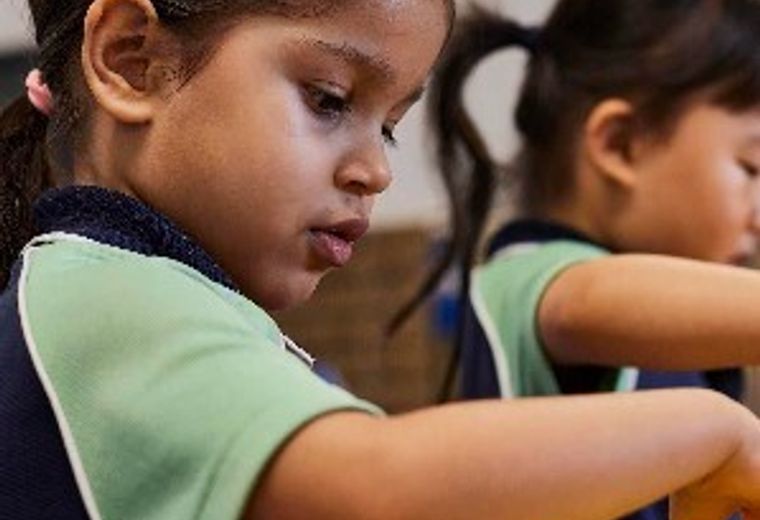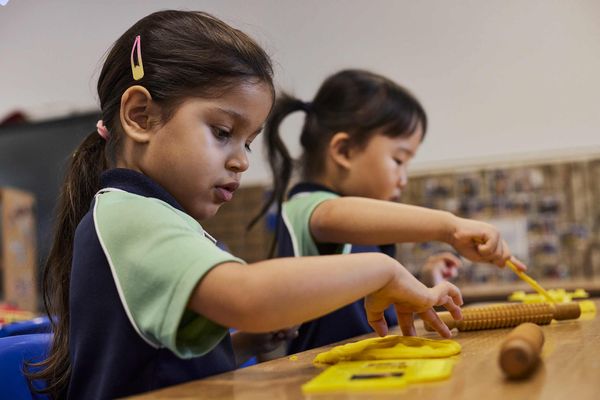Play - a Platform for finding Excitement and Joy in Learning

At Coomera Anglican College Early Learning Centre play is taken very seriously and is part of our core business.
Playful learning allows for children to explore the unknown with wonder and curiosity to gain meaning and context of their world. It leads to learning as it empowers the child to choose, take ownership and autonomy as they engage with resources and with others. Play is a platform for finding excitement and joy in learning.
Children love to play because it’s fun – but also vital to healthy development. During different types of play, children learn and practice key social, thinking, physical, and emotional skills, including creativity, imagination, and problem-solving. The benefits of play are progressive, meaning that the skills that the children develop during their fun and games build upon each other.
The children in Coomera Anglican College's Early Learning Centre enjoy experiences of solitary play or independent play as it provides unique opportunities for the child to explore their own interests on their own terms while others stand back and engage in ‘onlooker play’. This type of play supports the tentative child who needs to learn the rules or to watch what is happening before joining in with others. Watching often helps children to gain confidence by mimicking the play of others and building their own skills to play and interact. Similarly, our younger children will often be found having fun playing alongside one another in what is referred to as ‘parallel play’. This doesn’t mean that they don’t like one another; they are just engrossed in their own little worlds, yet they will often mimic one another without realizing what they are doing.
As the children grow and their social skills increase other forms of play become more visible. Children can be busily engaged in ‘cooperative play’ where they come together to work on a group project practicing all the social skills of turn-taking, negotiation, and problem-solving. It is at this point that ‘competitive play’ begins where games and sporting activities enable them to learn about rules, turn-taking, and being part of a team, and the realities of winning and losing often take over the playground spaces. This type of play also helps our friends develop emotional regulation, sportsmanship, and the ability to accept defeat.

Constructive play encapsulates the power of resilience; Dramatic play – the power of communal living; Physical play – the power of fitness and physical movements, Symbolic play – the power of communicating emotional and social wellbeing, benefit the growth of all children. They are all embedded within our programme as these tools enhance the wealth of learning that comes from within each child allowing them to grow into confident and capable young people.
Play is a tremendously important part of child development. It is very important that as parents and educators, while we encourage and support opportunities for play, we also need to remember that children need their own time and space to learn these skills, which will come independently.
Article written by Mrs Jenny Rees, Director of the Coomera Anglican College Early Learning Centre and Outside School Hours Care.
We do not have to actively teach the lessons children learn from play. The beauty is that children discover concepts and skills as they play their games, all in moments of excitement and fun."
